IUP students truly do have the best of all worlds.
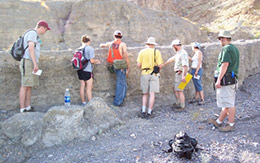 Faculty are committed to teaching and being available to students, AND faculty are part of cutting-edge research. Because they understand the value of both worlds, faculty know how to push students “out of the nest” and give them opportunities they may not have thought possible.
Faculty are committed to teaching and being available to students, AND faculty are part of cutting-edge research. Because they understand the value of both worlds, faculty know how to push students “out of the nest” and give them opportunities they may not have thought possible.
Daniel O’Hara, a Geoscience and Computer Science major from Ebensburg, has been selected to present at the American Geophysical Union Annual International Conference in San Francisco in December.
I’ve been to Ebensburg. It’s a lovely little town, population 3,091 as of the 2000 census, but my point is that it’s a long way from there to presenting at an INTERNATIONAL conference with 20,000 geoscientists from all over the planet. That is not a typo–there will be 20,000 scientists at this event.
Graduate students, especially those at the Ph.D. level, often have research and presentation opportunities at other universities, but IUP excels at giving undergraduates the chance to do research worthy of international presentations and then helping them acquire the skills and confidence to be part of prestigious conferences and meetings.
IUP also commits its financial resources to making these kinds of opportunities possible–in Daniel’s case, he received support from the Department of Geoscience, the School of Graduate Studies and Research, the dean of Natural Sciences and Mathematics, and the IUP McNair Scholars Program.
Daniel’s presentation is just the tip of the iceberg in counting up research presentation opportunities for undergraduates. It happens in all disciplines, from Anthropology to Theater and Dance.
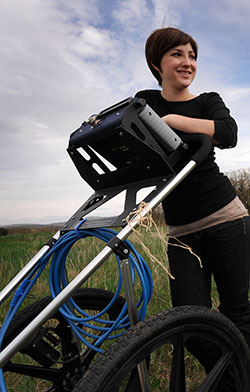 For example, Meghan Pace, an Anthropology/Archaeology Track major from Bucks County, presented her research at a national conference in Atlanta, and it resulted in her landing a summer job at a geophysical consulting firm. … That’s in addition to her doing archaeological research in China’s Fujian Province–all as an undergraduate. She’s now working on her master’s degree at IUP.
For example, Meghan Pace, an Anthropology/Archaeology Track major from Bucks County, presented her research at a national conference in Atlanta, and it resulted in her landing a summer job at a geophysical consulting firm. … That’s in addition to her doing archaeological research in China’s Fujian Province–all as an undergraduate. She’s now working on her master’s degree at IUP.
For the past six years, IUP has offered undergraduates an opportunity to prepare and present research and creative works at the Undergraduate Scholars Forum. Last year, the School of Graduate Studies and Research coordinated a forum for graduate research.
Congratulations, Daniel, and all of our students selected for these types of presentations. You bring great pride to IUP!

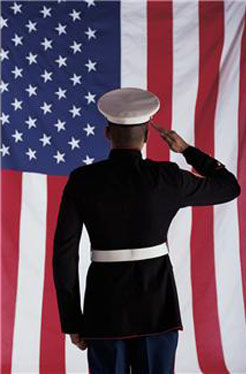 IUP works to honor and remember those who lost their lives in service to our country. The memorials on campus recognizing our veterans were the subject of a special
IUP works to honor and remember those who lost their lives in service to our country. The memorials on campus recognizing our veterans were the subject of a special  It’s going to get a little hairy around campus this month.
It’s going to get a little hairy around campus this month.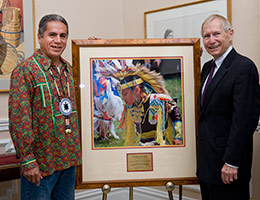 There’s a beautiful photograph in the president’s office at IUP, taken by retired Communications Media professor Richard Lamberski.
There’s a beautiful photograph in the president’s office at IUP, taken by retired Communications Media professor Richard Lamberski.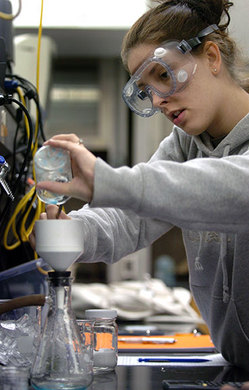
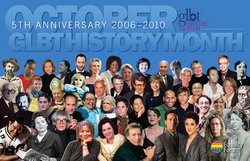
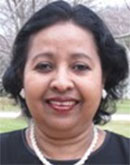 That’s why I felt that the results of a study by Parveen Ali, an assistant professor in
That’s why I felt that the results of a study by Parveen Ali, an assistant professor in  Over morning coffee, NPR listeners recently learned about eating habits that were discovered right here in Indiana, Pennsylvania. You can see the full story in
Over morning coffee, NPR listeners recently learned about eating habits that were discovered right here in Indiana, Pennsylvania. You can see the full story in 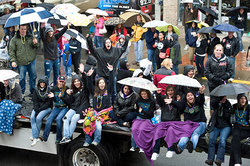
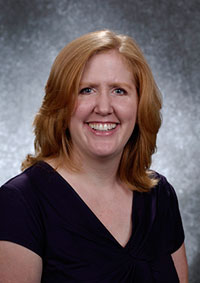 Criminology professor
Criminology professor